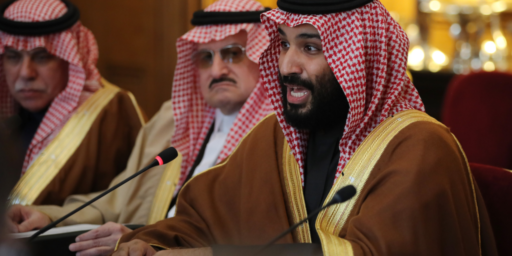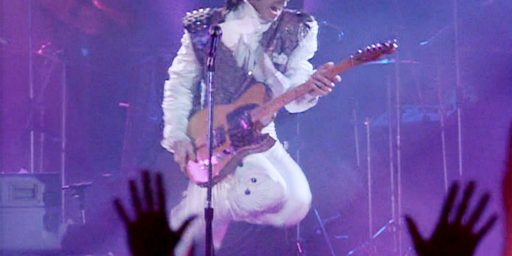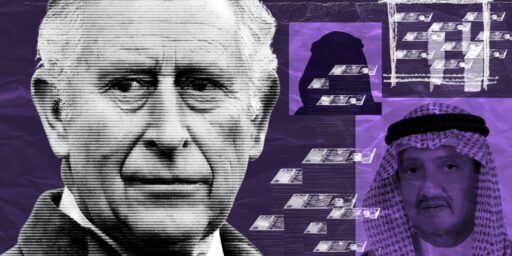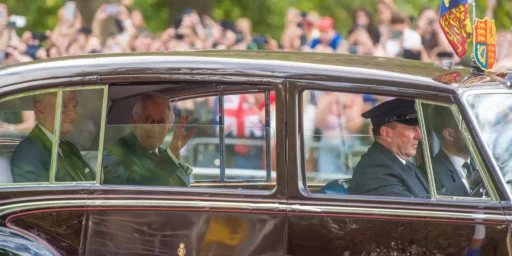Kidnap Threat May Keep UK’s Prince Harry from Iraq
A serious kidnapping threat to Prince Harry has caused UK Army chief General Sir Richard Dannatt to rethink whether to send “Cornet Wales” to Iraq, Michael Evans and James Hider report.
Army chiefs fear that a fatal attack on two British soldiers in Iraq last week was a dry run for an attempt on Prince Harry’s life, The Times has learnt. The attack was made on a type of vehicle that the Prince will use, and took place in a part of the country where he is due to be deployed as early as next month. The two died when their Scimitar reconnaissance vehicle was hit by a roadside bomb — the first time that British soldiers had been killed in a Scimitar as a result of enemy action. The Army fears that extremists deliberately chose the vehicle knowing that the Prince is a troop leader for a Scimitar-equipped unit.
Prince Harry faces a kidnap threat from insurgents, who have become active this month even within bases used by the British Army in southern Iraq. Security has been tightened at Camp Sparrowhawk, a base in Maysan Province used by reconnaissance units such as Prince Harry’s.
[…]
The Ministry of Defence and royal sources said that at present Prince Harry was still bound for Iraq, unless General Dannatt changed his mind. Defence sources said that every aspect of Prince Harry’s deployment was being reassessed, and that the military and intelligence services in Iraq had been asked urgently to give their views.
The prince is a special case, of course, but ultimately Spook66 is right: Harry must be allowed to go.
Obviously, the terrorists in Iraq would welcome the chance to kill or maim a member of Britain’s royal family, but that’s nothing new. Over the centuries, the royals have seen combat in scores of conflicts, and Britain’s enemies offered no quarter because of their presence. During World War II, a destroyer commanded by Harry’s great-great uncle (Lord Mountbatten) was sunk by the Luftwaffe, Mountbatten himself was killed by an IRA bomb in 1979. Harry’s grandfather, Prince Phillip, also saw action with the Royal Navy during World War II, and his uncle, Prince Andrew, was a combat helicopter pilot in the Falklands Campaign. Those members of the royal family did not ask for special favors because of their position–only the opportunity to do their jobs. Prince Harry has made a similar request in being allowed to accompany his regiment to Iraq.
While I have steadfastly opposed reinstatement of a draft on both philosophical and technical grounds, there is something to the argument that our all-volunteer system gives a free pass to the children of the elite to escape the dangers of military service. The days of noblesse oblige, when the children of men named Roosevelt, Kennedy, Rockefeller, and Bush routinely put on their country’s uniform during times of war are long gone. One of the good points to a constitutional monarchy is that proud tradition remains intact.
To his credit, Cornet Wales has chosen to follow it. Given the number of military officers in his immediate family, he knew better than most the nature of the call for which he volunteered. Let him now honor his commitment.





I respect the young man for his desire to do his duty but will this endanger others and make it more difficult for commanders? Many in the military do their duty without entering combat zones.
I realize it’s a tough call but I’m curious about what other factors are in the decision. Keeping in mind this type of war is very different than the Falklands or WWII.
Having published the name of his unit, when and where it will be serving in Iraq and even the type of vehicle he’ll command, actually sending him now would be tantamount to negligent homicide. I would hope the Brits aren’t that stupid.
Having published the name of his unit, when and where it will be serving in Iraq and even the type of vehicle he’ll command . . .
He’s second in line to the throne. It’s going to be impossible to keep his location a secret. Either he can be an infantry lieutenant or not.
Minor pedantic point, I believe Prince Harry’s third in line after his father Charles and older brother William.
Benefit: One more lieutenant in the field.
Risk: Handing the enemy his greatest victory since the Crusades.
Furthermore, if they send Harry now, they’ll have to send William later when he graduates from Sandhurst. It sounds like a foolish gamble to me.
My initial thoughts match Steve Plunk’s, that is, sending Harry into Iraq now will needlessly put the rest of his unit at greater risk. I commend his choice to serve in combat, but nobody wants to ride around with a prime target sitting next to them.
At any rate, here’s hoping he’s always wearing some kind of tracking device. If you know he’s going to be kidnapped, may as well make the most of it right?
William d’Inger: Harry is the younger of the two princes. William’s already done his service after graduating from Sandhurst.
William,
Bush already handed Al-Queda the great victory, the day he went into Iraq. Anything else would just be icing on the cake for Bin Laden.
It is to Harry’s credit that he does not want special treatment. Good for him.
Noblesse Oblige
(OK, several spellings)
Nobility is not just filling tabloids. Nobility is not celebrity.
True.
False. Harry entered the academy first. William will graduate later this year.
Wikipedia:
Slightly off topic but also interesting:
Given that both are uniformed officers and, thus, adults whether they’re ready or not, I’m curious as to why they’re both using “Wales” rather than “Mountbatten-Windsor.”